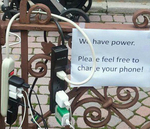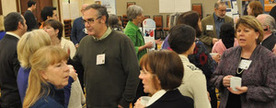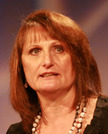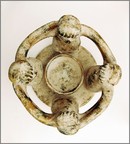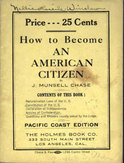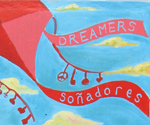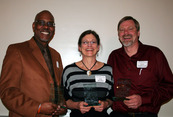November 2012
The Center’s mission encourages creative partnerships to design and implement initiatives that use collective leadership to address critical issues in our community. We have been honored to be part of the formation of Nourishing Networks, in which community members self-organize to fill the gaps that leave community members hungry. The Center is delighted to be the fiscal sponsor and welcome the Nourishing Network Institute as a program of the Center. In this newsletter, we describe the power of working in networks, introduce Linda Benson, leader of the Nourishing Network Institute, and share the experience of a recent gathering. ~ Karma Ruder
The Center’s mission encourages creative partnerships to design and implement initiatives that use collective leadership to address critical issues in our community. We have been honored to be part of the formation of Nourishing Networks, in which community members self-organize to fill the gaps that leave community members hungry. The Center is delighted to be the fiscal sponsor and welcome the Nourishing Network Institute as a program of the Center. In this newsletter, we describe the power of working in networks, introduce Linda Benson, leader of the Nourishing Network Institute, and share the experience of a recent gathering. ~ Karma Ruder
October 2012
The Center for Ethical Leadership has long believed we need to connect with each other across boundaries and to be responsible to one another. We often focus on issues of disparity and inequity because it is essential to identify them in order to advance the common good. This newsletter highlights the tension between charity and justice, describes our recent work in using the powerful circles process to foster healing in community, and introduces our newest affiliate staff member, Saroeum Phoung. ~ Dale Nienow
The Center for Ethical Leadership has long believed we need to connect with each other across boundaries and to be responsible to one another. We often focus on issues of disparity and inequity because it is essential to identify them in order to advance the common good. This newsletter highlights the tension between charity and justice, describes our recent work in using the powerful circles process to foster healing in community, and introduces our newest affiliate staff member, Saroeum Phoung. ~ Dale Nienow
August 2012
The United States is a nation of great promise – of the opportunity of people to better their lives. This is a fantastic promise, but we often trip ourselves over the recurring challenge of how we treat others who are different. There is a need for an important national conversation on how we deal with our fear of each other and the pain it causes. This month, we share the experiences from a recent Community Learning Exchange relating how Native American communities are healing themselves by understanding community pain and transforming it into positive action. ~ Dale Nienow
The United States is a nation of great promise – of the opportunity of people to better their lives. This is a fantastic promise, but we often trip ourselves over the recurring challenge of how we treat others who are different. There is a need for an important national conversation on how we deal with our fear of each other and the pain it causes. This month, we share the experiences from a recent Community Learning Exchange relating how Native American communities are healing themselves by understanding community pain and transforming it into positive action. ~ Dale Nienow

Can We have the Conversation Necessary To Living Together as Americans?
The US is in the final stages of an intense political season as the 2012 presidential election nears. The national conventions of the major political parties promise a better future via their platforms. However, the solutions put forth are often too general and simplistic to be meaningful. Americans cannot figure out how to have honest conversations with each other about how to live together in this society. If clear and effective change is to occur, how should the pain and fear of the people be addressed? What are the honest conversations we need to have? |
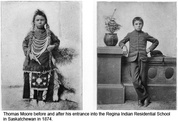
Reclaiming Education as a Tool for Healing
How do you heal a community? The recent centuries have been harsh to Native American tribes and they have suffered great trauma. Many people in the United States know that Native Americans were forced to give up ancestral lands and move onto smaller reservations. Fewer people know how education was used as a tool for destroying traditional Native life through the boarding schools movement. From 1861 to 1984, many NativeAmerican children were separated from their families and brought to residential schools. The purpose of this education was to assimilate these youth into the dominant US culture. In the process Native identities were destroyed including languages, traditions and families. The resulting historical trauma and collective grief passed from one generation to the next. |

Sharing Identity to Support Healing
Identity is often used by dominant cultures as a way to treat others differently. Identity can be used against people to deny them equal opportunities. In community healing work, the Center has found it powerful when people claim their identity, particularly around culture, as a core strength and asset. At the Montana Community Learning Exchange on healing from historical trauma, the hosts introduced anidentity box activity. Participants were asked to to bring three items from home to place in the identity box and to take time for self-reflection before decorating a box that visually suggested their personal identity. |
July 2012
We struggle over the issue of immigration and how it impacts the common good in the U.S. We hear many of the negative views about immigrants, but we don’t hear as much about what they add to our society. In this newsletter, we discuss how immigrants renew us, describe what we can learn from a public school in an immigrant community, and share a tip on how to weigh actions that contribute to the common good. ~ Dale Nienow
We struggle over the issue of immigration and how it impacts the common good in the U.S. We hear many of the negative views about immigrants, but we don’t hear as much about what they add to our society. In this newsletter, we discuss how immigrants renew us, describe what we can learn from a public school in an immigrant community, and share a tip on how to weigh actions that contribute to the common good. ~ Dale Nienow
June 2012
Race continues to play a powerful role in U.S. society. It is critical for anyone working to advance the common good to address the disparities of race. This month, we highlight the structures that perpetuate racial disparities, the multiple small ways people experience daily marginalization around race, and the way the Center develops the leadership capacity in organizations and communities to have these important conversations. ~ Dale Nienow
Race continues to play a powerful role in U.S. society. It is critical for anyone working to advance the common good to address the disparities of race. This month, we highlight the structures that perpetuate racial disparities, the multiple small ways people experience daily marginalization around race, and the way the Center develops the leadership capacity in organizations and communities to have these important conversations. ~ Dale Nienow
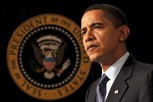
Race Still Matters
When Obama was elected as President, pundits began speculating that we were entering a post-racial society – where race wouldn’t matter. Electing an African-American President was clearly a milestone of progress toward equity in our society. However, the experience of many people of color is that systems and institutions still treat them differently, leading to fewer opportunities and harsher treatment. Kwesi Rollins, a board member for the Center for Ethical Leadership, points this out in a recent blog. He cites that “Black youth were more likely to be incarcerated than non-Black peers” and “Native American youth are over-represented in the juvenile justice system.” Or consider the banking system. In the past, people of color were denied mortgage funding more often than their white peers, and, during the recent financial meltdown, they were disproportionately targeted for predatory loans. While Obama serves as a symbol of hope, race still matters in determining fairness and opportunity. |

Race and Leadership Dialogues
Major stories appearing in the news prove that race continues to create division in our society. The strict Arizona law empowering local police to stop people they suspect of being illegal immigrants has led to the concern that Hispanic residents can be stopped for “driving while brown.” The killing of Trayvon Martin, a young African-American man, who was shot by a Hispanic neighbor who considered him “suspicious looking,” led to concerns of racial stereotyping of young black males as threatening. These stories can trigger strong memories of personal incidents, particularly for people of color who wonder why they have been stopped by a police officer while driving or where store security treated them with suspicion. Navigating daily life can be quite different depending on our race. |
Experience Being Different
So many of the problems of human experience come when people treat difference as deficient or as a basis for diminishing others. This has been evident with race in our country. The Center for Ethical Leadership believes that our differences should be viewed as sources of wisdom – the assets we need to create healthy, just and inclusive communities. When we work with organizations and groups in community, we often use the Gracious Space framework as a way to open honest, and supportive conversations about race. We defineGracious Space as a spirit and setting where we invite the stranger and learn in public. |
April 2012
Each of us matters to advancing the common good in society. This month we look more closely at three questions about the common good: What is our role in raising the compelling questions for our society? How do individuals make their unique contributions? What are ways to help community groups define the common good? ~ Dale Nienow
Each of us matters to advancing the common good in society. This month we look more closely at three questions about the common good: What is our role in raising the compelling questions for our society? How do individuals make their unique contributions? What are ways to help community groups define the common good? ~ Dale Nienow
March 2012 Newsletter
Stories and place are powerful influencers on our lives. This month we highlight how stories can remind us of the deep values that guide how we live together in society; how experiencing different contexts can shape our thinking about our own communities; and how the Center uses stories of place to shape community change work. ~ Dale Nienow
Stories and place are powerful influencers on our lives. This month we highlight how stories can remind us of the deep values that guide how we live together in society; how experiencing different contexts can shape our thinking about our own communities; and how the Center uses stories of place to shape community change work. ~ Dale Nienow
January 2012
Our communities need residents and leaders to work together collaboratively if we are to solve problems in a way that works for the whole community. This requires courage. This month we highlight sources that can inspire this courage, a story of how the Center had to model the collaboration it teaches, and how to assess readiness to collaborate. ~ Dale Nienow
Our communities need residents and leaders to work together collaboratively if we are to solve problems in a way that works for the whole community. This requires courage. This month we highlight sources that can inspire this courage, a story of how the Center had to model the collaboration it teaches, and how to assess readiness to collaborate. ~ Dale Nienow

